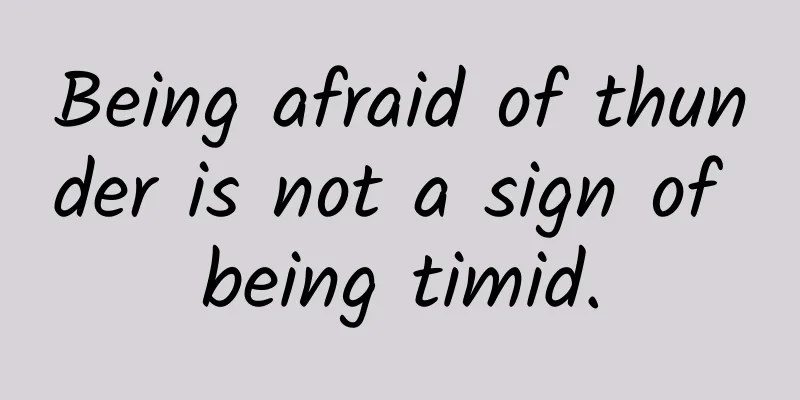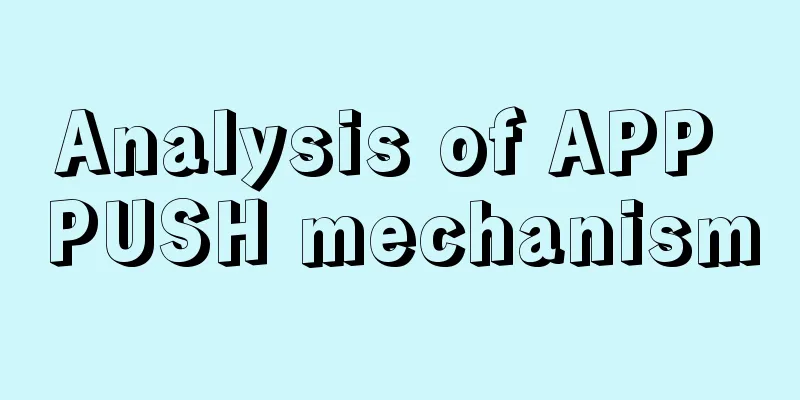Being afraid of thunder is not a sign of being timid.

|
Audit expert: Yin Tielun Deputy Chief Physician, Department of Neurology, Airport Branch, Peking University Third Hospital In the summer, on a rainy night, there were rolling thunder and lightning storms. Suddenly, there was a flash of light in the sky, followed by a deafening thunderclap! Although everyone is equally scared, whenever a lightning storm occurs, there are always some people whose reactions are beyond your expectations. Some may even be scared to tears by the lightning. Are these people particularly timid? Not this lightning storm Source: Game screenshots/Baidu Encyclopedia What is astrophobia? If, during a lightning storm, your body begins to tremble, you experience severe chest pain, nausea and irritability, and as time goes by, it becomes increasingly difficult to breathe and you cannot help crying, then be careful; this may not be a heart condition but could be cosmophobia . Lightning source: pixabay Astraphobia is a phobia characterized by an intense fear of extremely loud but natural noises in the environment, namely lightning and thunder. If you run when you see thunder or quickly cover your ears during a sudden storm, you may have astraphobia, a condition that can persist into adulthood. Symptoms of astrophobia What abnormal behaviors do people with astrophobia exhibit? For example, when a person is obsessed with watching various weather channels and weather forecasts to ensure that there will be no thunderstorms, or installing lightning rods and lightning protection devices on the roof of the building where they live, and when they hear the weather forecast of a thunderstorm, they begin to panic and develop anxiety. The above behaviors suggest that the other person is very likely to suffer from astrophobia, and patients generally experience a variety of psychological and physical symptoms. Source: therapymantra.co For example: Irritability and panic are the main symptoms of astrophobia. Prolonged unconsciousness. Trembling and excessive sweating. Rapid heartbeat, palpitations, and shortness of breath. Take shelter from the storm in various “shelters” such as basements, bathrooms, and closets. Constantly looking for signs of storms and obsessed with weather forecasts. Close doors, windows and curtains and try not to hear any noise from the storm. Frozen in one place—fearing that if you move any further you’ll be struck by lightning. Gastrointestinal problems, such as vomiting and nausea. Aerophobia often leads to another phobia called agoraphobia , which is an extreme fear of being in public or open areas. If aerophobia is not treated, it can lead to agoraphobia, a fear of leaving the house. Aerophobia can be very debilitating and can cause social isolation due to misunderstandings by others. Causes and diagnosis of astrophobia Phobias are common and come in many forms, varying in the degree to which they affect the sufferer's daily functioning. In the United States alone, 19 million people suffer from a phobia that ranges from mild to severe, seriously interfering with their daily lives. At present, the exact cause of astrophobia is not fully understood . It may be caused by innate, acquired or traumatic factors. Like other types of phobias, factors such as genetics, family history and experience (especially childhood traumatic events related to weather) may cause people to suffer from this phobia. What's more serious is that many patients will not seek active treatment until the disease seriously affects their personal lives, thus missing the opportunity for treatment and causing great harm to their body and mind. Source: therapymantra.co If you suspect you have acrophobia, the first thing to do is to see a doctor. Although the cause of acrophobia is unknown, your doctor will perform a thorough physical evaluation to rule out underlying health problems such as fear of heights, fear of water, heart disease, or migraines. It is generally recommended that people with astrophobia seek help from a therapist , which is the mainstay of coping with this condition. Talking to a therapist about feelings during extreme thunderstorms, especially the sources of those feelings, can help the therapist better understand the condition and find treatment. Coping with astrophobia Fortunately, cosmophobia is not necessarily permanent. It is a reversible disease that can be treated with relaxation techniques or anti-anxiety drugs. As a psychological disease, it is most likely caused by the internal and external pathogenic factors we mentioned above acting on people and causing brain dysfunction, thereby destroying the integrity of human brain function and the unity of the individual and the external environment. Therefore, psychotherapy is the most effective way to treat cosmophobia. >>>>Exposure therapy The goal of astrophobia treatment is to eliminate the patient's fear of thunderstorms. The therapist will try to get the patient to face the thunderstorm directly. If this is not desired, the therapist can also play a video or audio of a thunderstorm. Exposure therapy using VR Source: uxconnections.com After playing audio or video of a real thunderstorm, the therapist measures the patient's fear level and studies the triggers of fear. By exposing the patient to fear multiple times, the therapist can reduce the patient's fear level by teaching the patient relaxation techniques in thunderstorms. Common relaxation techniques used in exposure therapy include breathing exercises, psychological suggestion, and self-suggestion, all of which can calm the patient down. >>>>Cognitive behavioral therapy Although exposure therapy is effective in treating astrophobia, it is not recommended without cognitive behavioral therapy (CBT). While exposure therapy focuses on teaching patients how to manage their fear, CBT treatment focuses on changing patients' thoughts about their fear associated with thunderstorms. Cognitive behavioral therapy Source: therapymantra.co The common practice abroad is that first the CBT therapist has a one-on-one conversation with the patient, then the patient conveys all his negative thoughts about thunderstorms to the therapist, and finally the therapist uses positive thoughts to change the patient's negative thoughts about thunderstorms. >>>>Medication Psychiatrists rarely prescribe medication to treat cosmophobia. Medications for cosmophobia, usually antidepressants and antianxiety drugs, are only used when the patient's symptoms are very severe. Source: pixabay Finally, I want to say that astrophobia is a reversible disease. Patients should have a correct understanding of the disease and actively seek psychological treatment, which is an effective way to treat or eliminate the disease. For normal people, if there are similar patients around, they should not isolate or discriminate against them, but should lend a helping hand in time to help and comfort them. |
<<: Is such a "happy" holiday really good for children? - Focus on childhood obesity
>>: New secret of the earth's center: Is there an "inner core" hidden deep inside the earth?
Recommend
Mistakenly thought it was a cold, and almost lost my life! Don’t ignore these situations...
Have you ever had this experience when you had a ...
Statistics predict that iOS+Mac will replace Windows this year and device shipments will reach 268 million units
At present, the operating systems and devices of ...
Hair is obviously protein, so why can’t the stomach handle it?
Since when, hair has become one of the most impor...
Practical case: How to build high-quality user portraits?
If there is any core ability that a product manag...
Why do people pick their noses? Will picking your nose make your nostrils bigger?
1. Why do people like to pick their noses? Becaus...
A new way to accurately attract traffic from Himalaya Audio!
Everyone knows that Himalaya has over 100 million...
Can you eat the head of a crayfish? Is it yellow or poop inside?
Once upon a time, a person shuttled through the o...
How to operate a good community? Share 4 community skills!
Since 2017, communities have been pushed to the f...
January 2022 "Science" Rumor List: Do pre-prepared meals contain preservatives?
The list of "scientific" rumors for Jan...
How to hide some apps from the iOS home screen
If you are annoyed by the app icons that fill the...
The training institution’s circle of friends traffic strategy!
It is almost the end of the year, and education c...
Electric Technology Car News: Both the appearance and connotation make you give up Korean cars. Which one is better, the Tiggo 7 or the Roewe RX5, both domestic high-quality SUVs
In the Chinese SUV market, which is like a flouri...
32-bit is dead. What does this mean for Android and Apple?
[[405514]] This article is reproduced from Leipho...
I didn't die in the tiger's mouth, thanks to this thing in the zoo
Key Points ★ Wildlife parks often use concealed i...
Where is the future of TVOS, the official smart TV system of radio and television?
Nowadays, with smart TVs and smart set-top boxes ...









